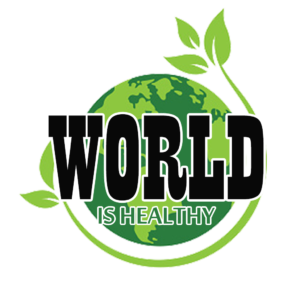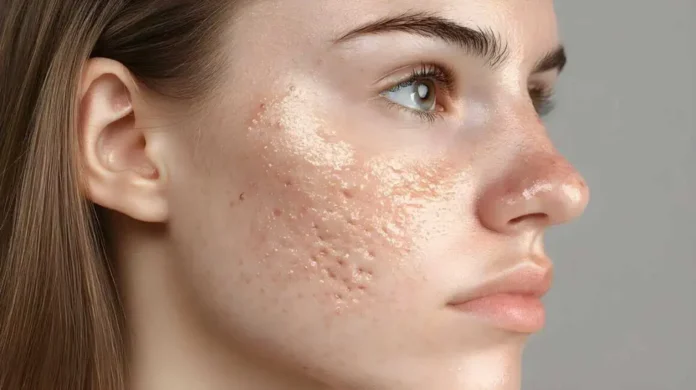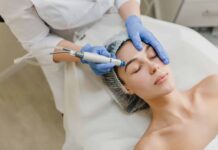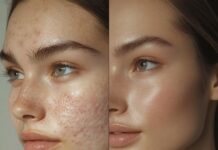Acne is a widespread issue for a majority of people in their age group, which causes people to feel uneasy and decreases their self-esteem as well. But, a well-planned regimen can reduce the appearance of acne, and should be implemented based on the kind of skin type and lifestyle.
This blog post provides the best acne-fighting skincare routine that meticulously analyzes each step. We offer a glimpse into how these methods are beneficial for your skin and help you in making them your own to meet your requirements.
In this way, it tackles the root causes of acne and improves overall skin health through a healthy and long-lasting routine for skincare.
This regimen provides an entire plan of action that can reduce and improve the condition of your skin and give you more beautiful skin than ever, regardless of whether you are dealing with occasional breakouts or fighting persistent acne.
Knowing the Causes of Acne
Before starting the routine, it’s important to be aware of the causes of acne and what causes it. Acne is a sign that hair follicles are blocked by dead skin cells and oil and causing whiteheads, blackheads, or pimples.
The causes of acne are hormone changes, diet, stress, and genetics. Understanding these aspects can assist in determining a suitable routine of skincare that combats acne efficiently.
Gentle Cleansing
Cleansing is the foundation of any routine for skincare, particularly for those with acne-prone skin. It is essential to choose an easy cleanser that removes impurities and toxins without stripping your face of essential oils. The use of harsh or excessive cleansing products can alter the natural balance of the skin, which can increase oil production, as well as make acne worse.
When selecting a cleanser, ensure that it is non-comedogenic (won’t block pores) and hypoallergenic. Ingredients such as hyaluronic acids or Glycerin can be beneficial since they cleanse while preserving the hydration.
It’s essential to clean your face two times each day, in the morning to get rid of any oils that may have accumulated over the night, and then wash off the day’s dirt and makeup in the evening.
Cleaning with Care
Exfoliation is essential for getting rid of dead skin cells and clearing pores, which are the most common cause of acne. But moderation is the key. Exfoliation that is too vigorous can strip the skin of its natural oils, causing irritation and a rise in acne. It’s crucial to choose the correct type of exfoliant.
Chemical exfoliants such as AHAs (e.g., glycolic acid) and BHAs (e.g., salicylic acid) are typically preferred by acne-prone skin because they are less abrasive than other physical exfoliants. Limit your exfoliation to 2 or 3 times every week and watch the reaction of your skin, and adjust frequency as required.
Using Treatments for Acne
Different treatments for acne are available that target acne, such as topical retinoids and salicylic acid. Topical retinoids assist in the turnover of cells and stop the clogging of pores. Benzoyl Peroxide is highly effective due to its antibacterial properties. Salicylic acid is a BHA that penetrates pores deeply to eliminate the excess sebum.
Each ingredient has its own advantages, but it could also cause irritation or dryness. Always test your skin prior to applying the product and begin with smaller amounts to reduce the chance of irritation. Introduce new treatments slowly so that your skin can adjust.
Hydrating and moisturizing
Contrary to popular opinion, the importance of moisturizing is not disputed. The skin that is prone to acne. Hydrating the skin can help control oil production and ensure an encapsulated skin. Choose moisturisers with no comedogenic ingredients that offer the necessary hydration, without clogging pores.
Ingredients such as ceramides the niacinamide, and hyaluronic acids can help to retain moisture and soothe the skin. Apply moisturiser when your skin is still damp to seal in additional water.
Sun Protection
Sun shielding is crucial, especially when you are using acne treatments, because many of them can increase the sensitivity to light. Broad-spectrum sunscreens shield from UVA and UVB Rays. If you have acne-prone skin, look for sunscreens with no oil and not comedogenic.
A gel-based lotion or light formulation is recommended to prevent blocked pores that block. Apply sunscreen daily, no matter what the temperature, since UV rays are able to be absorbed by the clouds and windows.
Diet and Lifestyle Factors
Acne isn’t only a problem of the surface; the way you live and your diet can have an impact on the health of your skin. Sugar-rich diets and dairy have been linked with more acne. Foods that are rich in omega-3 fatty acids, antioxidants, and vitamins can help promote healthier skin.
Furthermore, sleep deprivation, stress, and certain medications may cause acne to worsen. Implementing a holistic plan that includes healthy eating as well as regular exercise and techniques to manage stress is beneficial for managing acne, as well as the use of topical treatments.
Takeaway
The ideal combination of a routine to fight acne is a combination of consistency, high-quality products, and a relationship with the skin. Understanding the type of skin and the reasons behind this acne is crucial.
Start with a mild cleanser. Then, move on to a cleanser as it helps to restore the skin’s pH, and then finish by applying a spot treatment without oil, which can help clear breakouts with salicylic acid and benzoyl peroxide.
Be sure to moisturise your skin as well, as even oily skin types require this, and you can complete your skincare routine during the morning with a broad-spectrum sunscreen. Cleanse your skin at least once a week to remove dead skin cells. But be careful not to over-exfoliate, as it could result in more irritation.
Be perseverant and adhere to your regimen because the results will require time. Be sure to see an expert dermatologist if you have persistent or severe acne.
Take these actions and changes in the process to get healthy and clear skin. What you shouldn’t be concerned about is the quick outcomes; instead, remain determined to continue the journey that you’ve already started.
FAQs
1. Does over-cleansing lead to an increase in breakouts?
Cleaning too often or using harsh cleansers can remove the skin’s natural oils, which can lead to an increase in levels of production and even acne.
2. When should I cleanse my acne-prone face?
Limit exfoliation to 2 or 3 times every week. Exfoliation too frequently can irritate skin and aggravate acne.
3. Are there any particular ingredients that I should be looking for in treatments for acne?
Be sure to look for ingredients such as the ingredients benzoyl peroxide and salicylic acids, and retinoids. Begin with lower levels to reduce irritation.
4. Is moisturizer necessary for an acne-prone, oily face?
Absolutely. Moisturising can help to regulate oil production and keep the health of your skin healthy. Use products that aren’t comedogenic.
5. What is the reason sunscreens are so important in a routine for acne?
A lot of acne treatments can make the skin more sensitive to the sun. Broad-spectrum sunscreen guards against harmful UV radiation and helps prevent any further damage to the skin.
6. Can diet affect acne?
Yes, diet plays a role in skin health. Foods that are high in sugar and dairy can cause acne, whereas a healthy diet high in omega-3s as well as antioxidants can help improve the condition of your skin.






